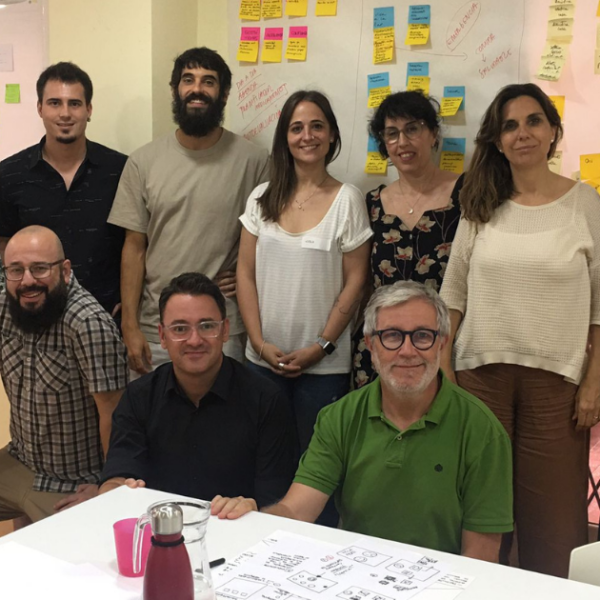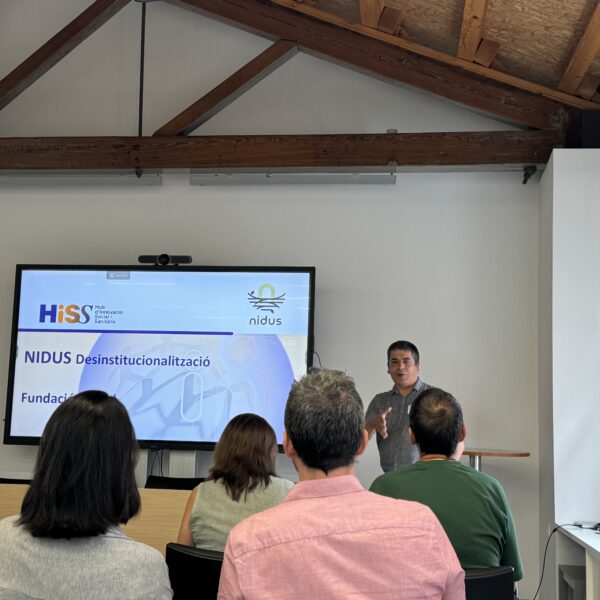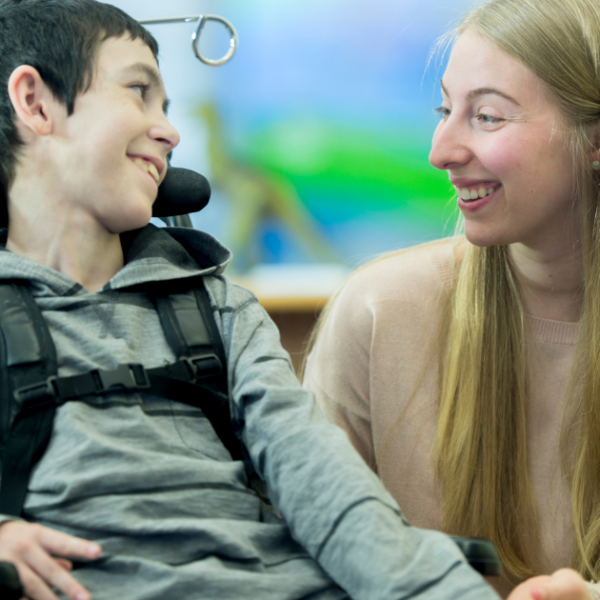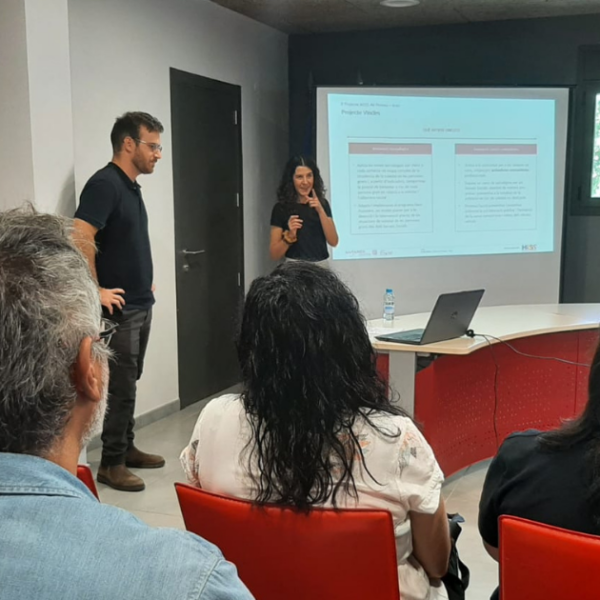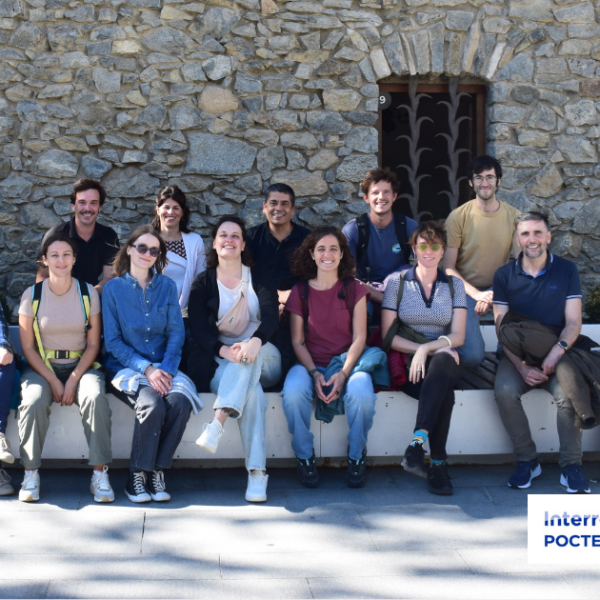Fantova defends that Social Services need data intelligence to be able to universalize
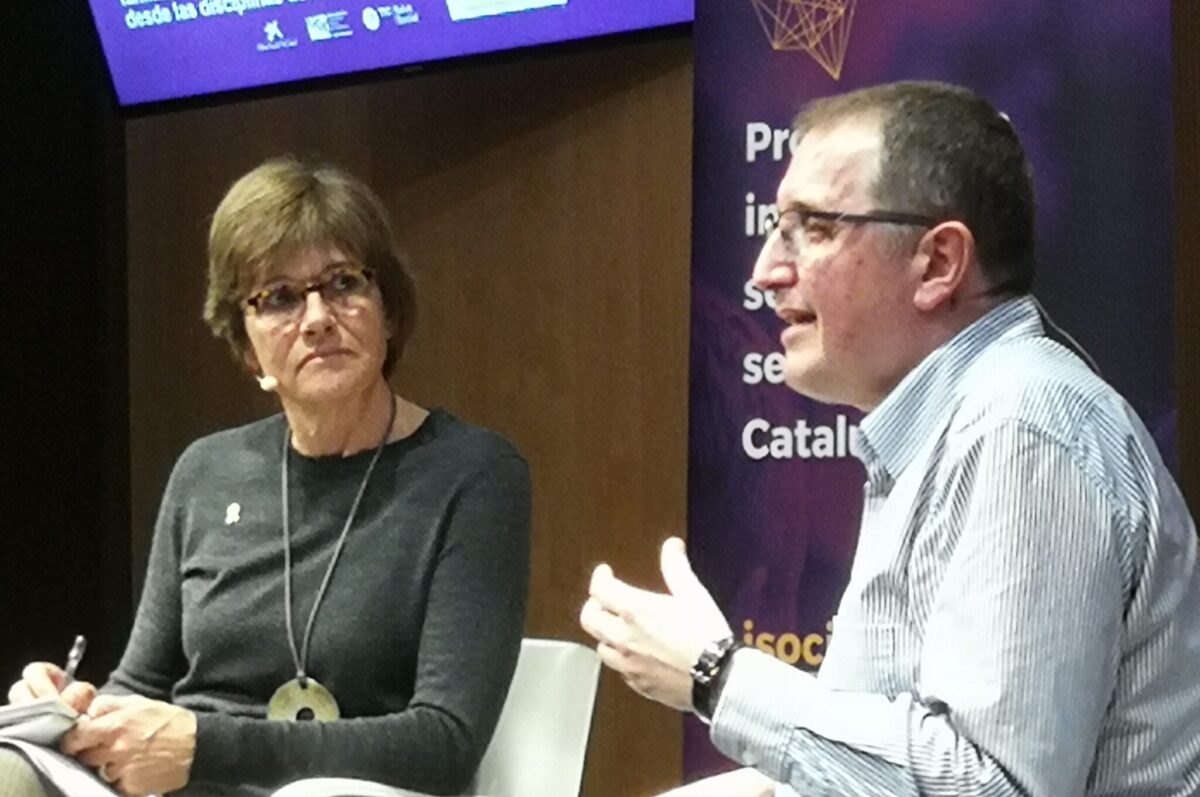
Fantova defends that Social Services need data intelligence to be able to universalize
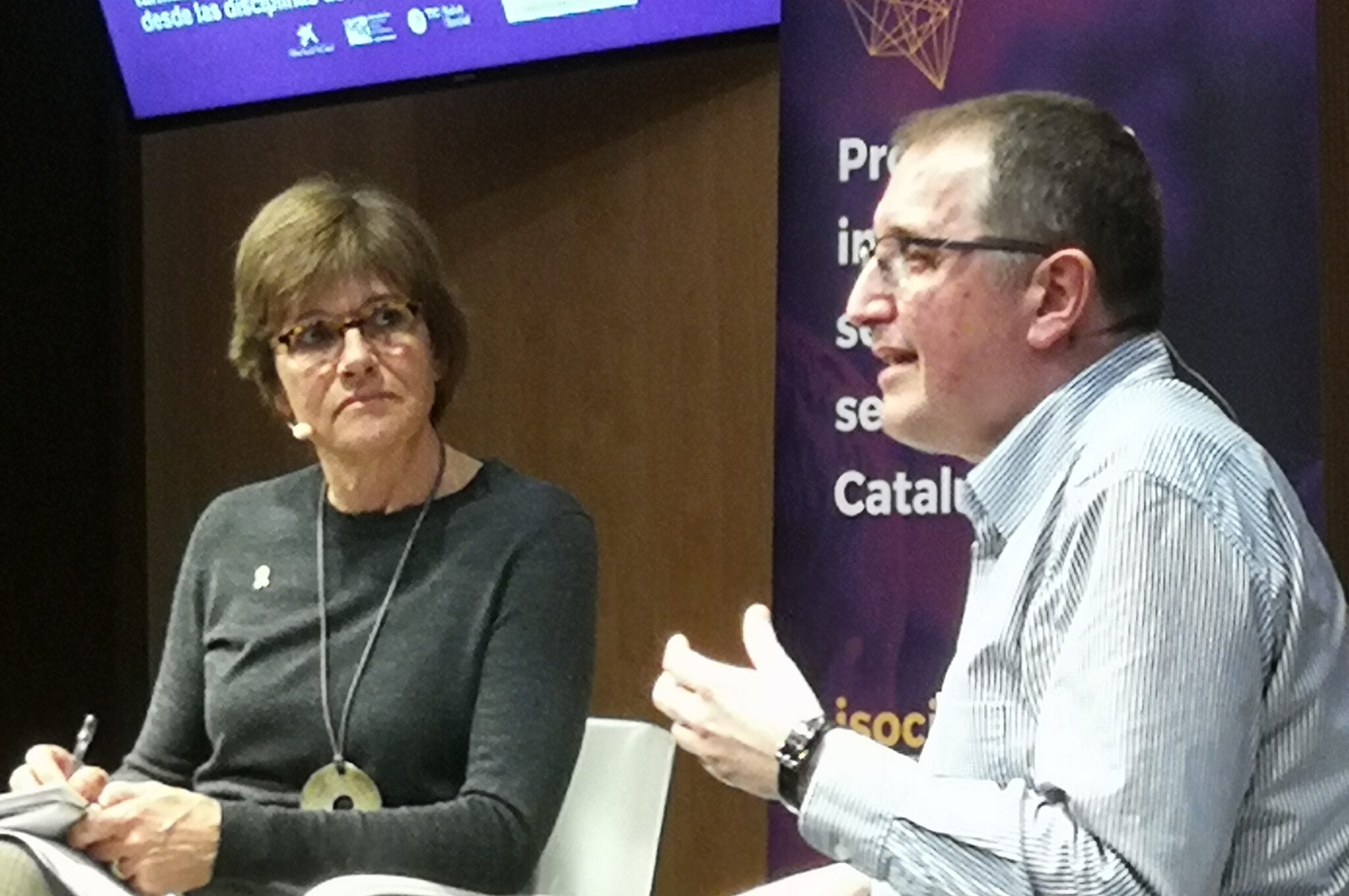
On Tuesday March 10, 2020 the closing conference of the reflection cycle “Big data and Social Services” took place, organized by the iSocial Foundation, by Fernando Fantova, doctor in sociology expert in Social Services and former Deputy Minister of the Basque Government.
With a full capacity for many days before, the nearly 200 people gathered in the auditorium of the Palau Macaya in Barcelona had the opportunity to follow Mr. Fantova around the challenge that Big Data and artificial intelligence pose for the Social Services sector today. The conference was presented and moderated by Montse Cervera, president of the iSocial Foundation, who introduced the topic after a welcome by Mr. Josep Ollé, director of the Palau Macaya; Toni Codina, director of the iSocial Foundation; Marta Aymerich, vice-rector of the UOC; and Yolanda Lupiáñez, director of digital transformation at the TIC Salut Social Foundation.
With the title “Social services facing the intelligence of large amounts of data (big data)”, Fantova offered his vision, always sharp and clairvoyant, on the impact that this technological innovation can have on social welfare systems. First, according to Fantova, it will help to show that the activity of allocating resources to people with subsistence needs, which data analysis can make more objective and even automate, does not have to continue to be managed from Social Services. And on the other, it will allow Social Services to focus on the other activity that is more proper to it: ensuring care and support for people to develop and complement their autonomy for decisions and activities of daily life in family and community relationships. And not only that, but in this area it will make the evaluations of the various disciplines involved more intelligent.
According to Fantova, these advances, which data intelligence can boost, are essential since otherwise the current model of Social Services is unscalable: it will not be possible to universalize, if it does not incorporate more technology, while at the same time promoting community networks.
Next, Fantova explored in more detail in what aspects Big data can provide promising impacts for the improvement of the Social Services system: the provision of evidence that facilitates and improves the work of professionals in identifying results, factors and interventions effective; a better positioning, communication and capillarity of the public network in the territory; the vertical integration of the various Social Services, to facilitate people’s itineraries; horizontal integration with other systems depending on people’s needs; and the generation of an ecosystem of knowledge and evidence on successful practices that can be scalable.
Fantova exemplified in public home care services what data intelligence can contribute in the near future: proactive segmentation and geolocation based on indicators of functional and relational fragility, and contextual factors of housing, urban, economic and services; flexibility, territorialization and self-management in services; diversification and integration of home interventions, in the open environment, in equipment, advanced telecare or others; initiatives to integrate social and health services in homes and the community in different situations and life cycle transitions; walk towards a continuum between home and non-home social services in a context of more diversity of housing alternatives; and synergies between community care and community action.
In short, according to Fantova, it is about using technology, as other sectors have done, so that it acts as a lever for the improvements that the Social Services system needs today: advance in the personalization of interventions, in economic efficiency, in organizational integration, in collaborative dynamics, in preventive impact, in social legitimation, in ethical quality, in democratic governance and in the political universalization of Social Services.
The reflection cycle “Big Data and Social Services” will close with a final summary document of the entire cycle, which the iSocial Foundation will send to the more than 400 people who have participated in the various activities organized between September 2019 and March 2020. At the moment, the presentation used by Fernando Fantova in his conference can be downloaded now.
Actualitat

